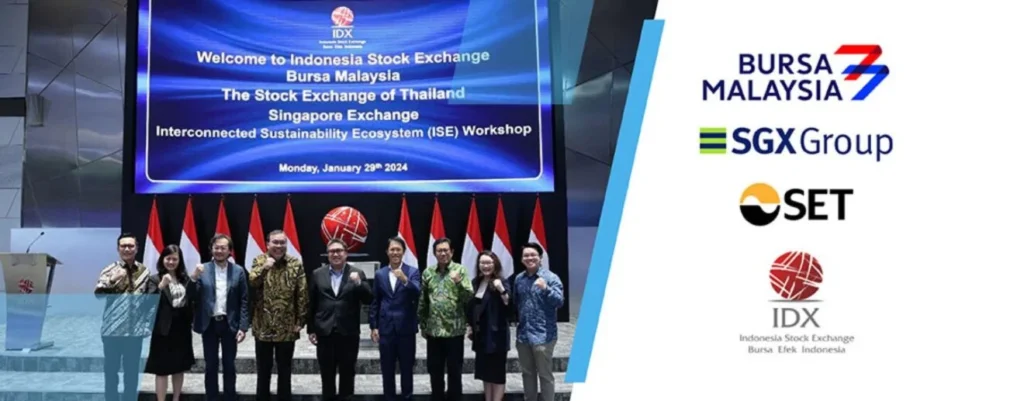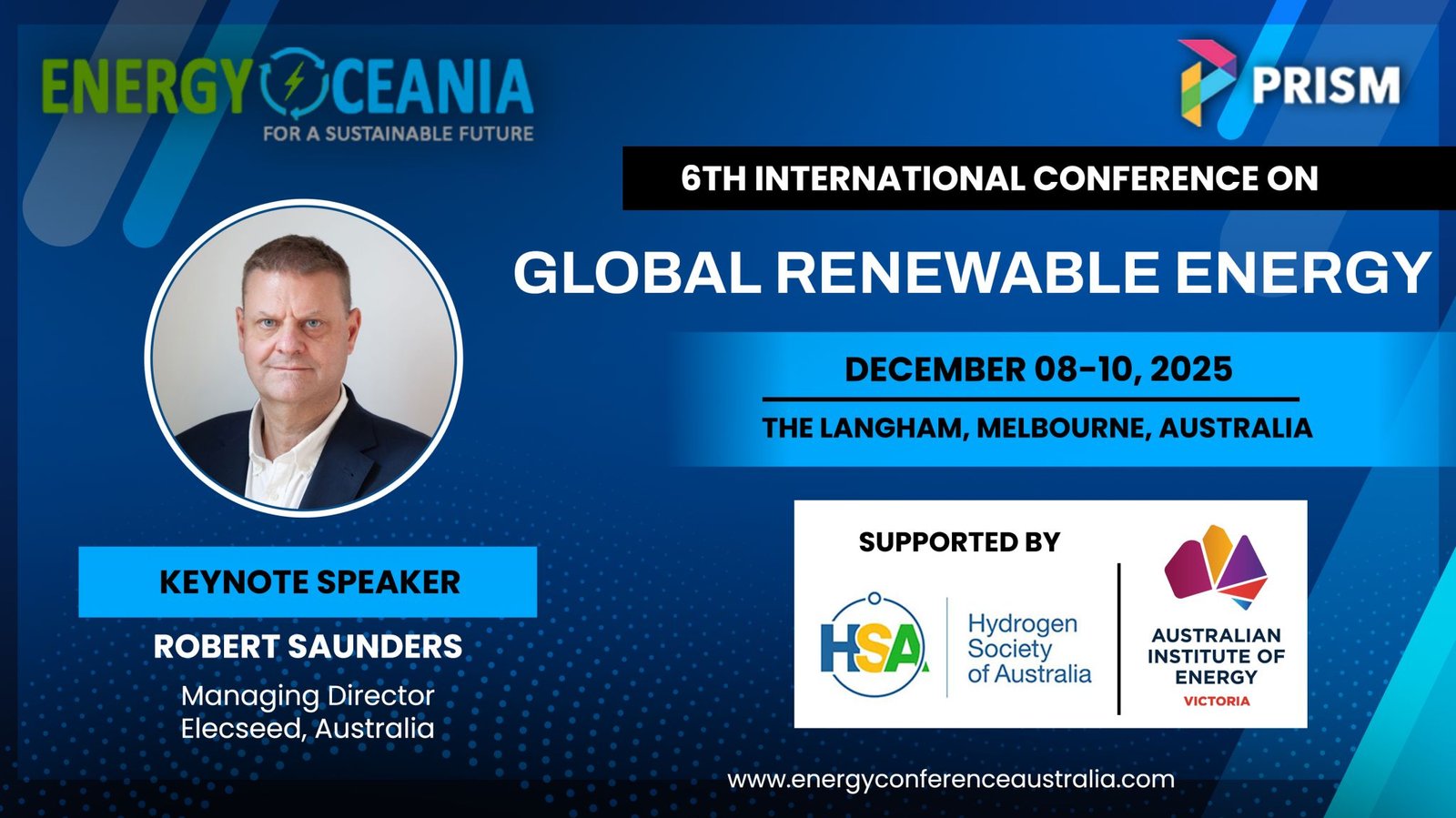Image source: ASEAN Exchanges / Fintech News Singapore
ASEAN members of Malaysia, Indonesia, Thailand, and Singapore join forces for ESG sustainable growth within ASEAN region.
On 15 February 2023, Bursa Malaysia, Indonesia Stock Exchange (IDX), The Stock Exchange of Thailand (SET), and Singapore Exchange Group (SGX) declared their partnership with the Association of Southeast Asian Nations-Interconnected Sustainability Ecosystem (ASEAN-ISE). This endeavour is designed to foster sustainable growth within the ASEAN region by incorporating standard environmental, social, and governance (ESG) metrics into their data systems.
This initiative aims to establish a unified ESG ecosystem to encourage sustainable growth in ASEAN, allowing participating exchanges to benefit from economies of scale through cost-effectiveness and expedited time-to-market with suitable solutions. The participating exchanges have consented to collaboration deliverables that are outcome-driven and consider the local factors and maturity level of their markets.
Loh Boon Chye, CEO, SGX Group, said, “As we witness the profound impact of climate change in this region, collaboration has become increasingly important for members in ASEAN Exchanges. SGX Group acknowledges the urgency for timely action and two years ago, launched ESGenome, the online data portal for publicly listed companies to facilitate sustainability and climate-related reporting … by sharing our expertise and coordinating efforts, we can mobilise capital for sustainable financing, contributing to a more economically and climate resilient ASEAN community.”
Bursa Malaysia has been assigned the role of the ASEAN-ISE Secretariat to supervise the implementation of the initiative, to ensure the successful execution of the goals.
The ASEAN-ISE is committed to establishing a unified ESG ecosystem to support sustainable development, enable cost savings and faster market access for participating exchanges, and assist ESG-compliant companies in increasing their business value through enhanced disclosures.
This initiative will devise infrastructure solutions to enable cross-border trade flows, connect corporate supply chains with ESG-focused investment capital, and offer competitive financing rates for suppliers with robust ESG practices. The participating exchanges have pledged to adopt the “ASEAN Exchanges Common ESG Metrics” in their ESG reporting platforms and will finalize the implementation details at the 37th ASEAN Exchanges CEOs Meeting scheduled for July 2024 in Malaysia.
This initiative welcomes other exchanges interested in promoting sustainable development and responsible business practices within the ASEAN region.
Environmental, Social, and Governance (ESG) factors are pivotal in the pursuit of sustainable development.
Environmental Considerations: ESG principles guide companies to acknowledge their environmental impact and adopt measures that lessen environmental damage. This encompasses initiatives to counteract climate change, manage waste responsibly, and preserve natural resources.
Social Accountability: The social component of ESG endorses ethical business conduct that respects human rights, encourages diversity and inclusion, and makes a positive contribution to the communities in which businesses operate.
Governance: Robust governance practices ensure that companies operate with transparency and integrity, which can foster sustainable growth. This includes elements such as corporate ethics, executive remuneration, and board diversity.
Financial Performance: Companies exhibiting strong ESG performance can alleviate financial constraints, augment their corporate human capital, and mitigate management short-sightedness, thereby positively influencing green corporate innovation.
Investment: ESG investing evaluates companies based on criteria related to social responsibility, environmental friendliness, and sound corporate governance. These attributes can contribute to sustainability.
In conclusion, ESG contributes to sustainable development by inspiring companies to operate in an environmentally considerate, socially responsible, and ethically governed manner. This not only benefits the companies themselves but also furthers the wider objective of sustainable development.












